Strategic Project Programme Management Diploma
 IPMA-C®, NFQ Level 9, SPPM Dip.
IPMA-C®, NFQ Level 9, SPPM Dip. 42 hours of Learning
42 hours of Learning  24 Weeks
24 Weeks Welcome to the Course
Welcome to the Strategic Project Programme Management Diploma course. This is a self-directed learning programme designed to help you develop new skills at your own pace.
David Shiel
My name is David Shiel, and I am your Course Director on the Strategic Project Programme Management Diploma. Through this course, we’ll help you develop the skills and knowledge needed for successful project management.
The course content reflects current global research, emerging trends, and leading practices. You will come away from this course with concrete techniques to immediately improve programme and portfolio management performance.
Course Modules
These modules were designed to provide you with the concepts and techniques you need to use as a strategic framework to achieve the mission of the organisation.
1. Developing Strategic Competences for Project Managers
2. Project Management Mastery
3. Organisational Project Management (OPM)
4.1. Project Management Information Systems (PMIS)
4.2. Project Portfolio Management Implementation
5.1. Developing a Project Management Office (PMO)
5.2. Learn from Practice: PMO Maturity Index
6.1. Fundamentals of Programme Management
6.2. Benefits Realisation Management
7.1. PMO Case Study Implementation
7.2. Project Portfolio Management In Action
8.1. Strategy Design v Strategy Execution
8.2. Negotiation Strategy
9. Governance for the Management of Projects
10. Project Change Management
11. Project Management Complexity
12. Lean and Agile Project Management
13.1. Financial Basics for Project Managers
13.2. Programme Review
Learning Outcomes
By the end of this course, you will be able to:
- Discuss how to influence the higher contextual aspects of projects.
- Demonstrate the principles of project, programme and portfolio management and balance the portfolio with the strategic setting.
- Explain the different types of Project Management Office (PMO), illustrate the functions of the PMO and how they could be constructed and choose a methodology and information system for the PMO.
- Apply financial management as well as cost management concepts.
- Design a negotiation strategy and conclude negotiated agreements.
- Engage and effectively manage the expectations of stakeholders toward the success of the initiative.
- Demonstrate in detail their strengths and weaknesses against each competency based on a knowledge and experience scoring evaluation system.
- Establish a baseline plan for future career development and improvement of competences identified as being deficient.
- Demonstrate their competencies in specific areas of project management.
- Communicate project core messages to executives.
Course Content
Course Instructor

David Shiel
MBA, IPMA-B®
Course Director
David Shiel is a Senior Programme Manager in a Boston Scientific Strategic PMO – Europe, Middle East & Africa (EMEA) Region.
He leads teams of PM’s working on Transformation Programs to achieve the region’s Strategic goals.
With a proven track record of meeting Project scope, schedules, and budgets, he has a thorough understanding of commercial, product development, quality & regulatory requirements.
David also has experience of development start-up innovation tactics.
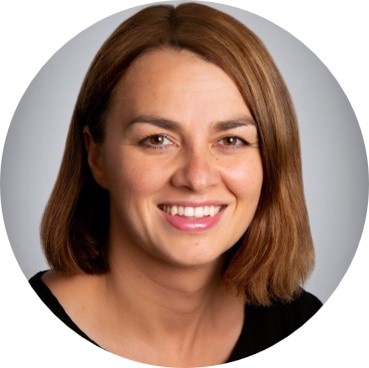
Joanna Koprowicz
Joanna Koprowicz earned a Master’s degree in Project Management from University College Dublin. Joanna worked in a typical waterfall environment after graduating from college, but she was later introduced to the Agile mindset and culture, which she quickly fell in love with and decided to pursue as a career. Joanna has been an Agile Coach, Trainer, and Consultant at Change Angels since 2018.

Padhraic Ludden
MSc, PMP®
Padhraic is a Consultant Program Manager with 34 years’ experience in the manufacturing sector and IT sector, over 30 of those with EDS and Hewlett-Packard and Storm Technology.
He has worked predominately as a Project/Programme manager providing IT application services to manufacturing companies such as GM and SKF.
Padhraic graduated from the National University of Ireland, Galway, (NUIG) in 1984 with a Bachelor degree in Industrial Engineering, holds a Masters in Project Mgmt (UL) and is currently conducting doctoral research with the Enterprise Research Centre, University of Limerick.

Dr. Andrew Bell
PhD, MSc, BA, RPP, FAPM, SFHEA
Andrew started his Project Management career with 15 years in the automotive industry at Land Rover where he quickly experienced the people side of delivering projects. He then spent 4 years as a Project Management Lecturer delivering short training courses on Project Management topics including Microsoft Project, and the related project management people skills.
Andrew then moved on to spend 13 years at Coventry University teaching Project Management and Research Skills, building his knowledge of Project Management and people issues with a PhD on the use of Project Management Simulations. He has volunteered for the APM for nearly 20 years, and has held committee positions on the Coventry Chapter, Midlands Branch, and National Branch Steering group and as chair of the People SIG committee.
Andrew is currently a ChPP Chartered Project Professional, a Fellow of the APM and also holds RPP status. Andrew has worked with the APM writing examination questions and reviewing membership applications.

Elizabeth Harrin
MA, FAPM, MBCS
Elizabeth Harrin, MA, FAPM, MBCS is director of Otobos Consultants Ltd, a project communications consultancy specialising in copywriting for project management firms. She has over 20 years’ experience as a project and program manager, having spent eight years in financial services (including two based in Paris, France) and then over 12 years in healthcare.
Elizabeth is a PRINCE2, MSP and P3O Practitioner, and holds the ITIL Foundation certificate. She is a Fellow of the Association for Project Management and a member of PMI. She holds degrees from the University of York and Roehampton University.
Elizabeth has written 7 books about project management: Managing Multiple Projects, Shortcuts to Success: Project Management in the Real World (which was a finalist in the Management Book of the Year Awards 2014 and now in its second edition), Collaboration Tools for Project Managers, Communicating Change, Project Manager, Customer-Centric Project Management and Engaging Stakeholders on Projects: How to Harness People Power.

Sheilina Somani
ChPP, RPP, FAPM, FHEA
Sheilina is a Chartered Project Professional (ChPP) and Fellow (FAPM) with the Association for Project Management; Fellow of the Higher Educational Institute and Master NLP Practitioner.
Sheilina is an articulate Project Professional who has delivered successful programmes, project and products across diverse sectors. She founded Positively Project Management over 30 years ago. Currently, she is a Keynote Speaker, Chartership Assessor, C-Suite Coach, Mentor, Awards Judge, and Volunteer at Shakespeare’s Globe Theatre.
Sheilina is known for her curiosity, willingness to learn, and drive for informed decision-making. Detail-oriented and quality-focused, she adapts positive and inclusive approaches. A sought-after speaker, facilitator, and trainer, she blends engagement, enthusiasm, and experience. Her expertise includes global projects, culture, communication, ethics, conflict resolution, integration, and organisational change.
Sheilina has developed and delivered apprenticeship, academic, and corporate training programmes. In 2021, she published ‘Cadence of Confidence’ to support personal development, using music to boost engagement. She enjoys the challenges of delivery, education, documentation, and people development.

Nadege Minois
Nadege Minois has managed research and IT projects for 2 decades. She worked in 5 different countries and worked with people from all over the world. She experienced how sub-optimal communication can hinder the delivery of projects. So, she has decided, as a freelance consultant, to help project managers, their teams and organisations to set up project communication to deliver projects successfully.
Nadege has a PhD in Biology. She is a qualified Agile Project Manager, Programme Manager, Scrum Master, Product Owner and ScrumAgile Master.

Rob Kidd
MBA, PGCLT, CMgr, FCMI FAPM, FHEA
Rob is a freelance project management consultant and educator based in London, UK. He has over 15 years’ experience managing projects, and helping organisations to manage projects better. In recent years, he has focused on strategic change projects in the food and hospitality industry. Rob also serves as a charity chair, non-executive director and board advisor.
Rob is a Fellow of the Chartered Management Institute, the Association for Project Management and the Higher Education Institute. He is a certified PRINCE2 and Agile Practitioner. He holds an MBA (Technology Management) from the Open University and a Post-Graduate Certificate in Learning and Teaching from BPP.

Kathleen Keogh
BA, MBA, PMP®
Kathleen is a Senior Lecturer with the Institute. She has over 25 years in Operations Management in Tech MNA’s like APC, Microsoft and Digicel.
She has led global projects for Acquisition Integrations, Digital Strategies, Product Launches, Supply Chain Reengineering, System/IT Implementations, Customer Tenders & frameworks for organisational alignment across Sales and Operations.
She is passionate about helping execs to hone their skills, expertise and passion for a fulfilling and rewarding career.
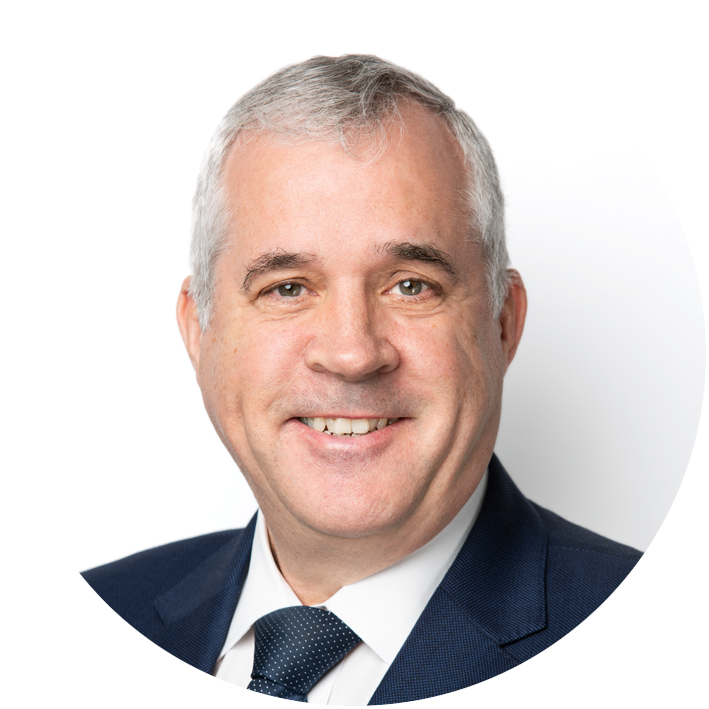
Gordon Stewart
MBA PgD CITP MBCS
Gordon is an independent Consultant in Technology & Change.
A dynamic, commercially astute business and technology leader, with over twenty years of global experience leading multi-million dollar technology transformation projects, designed to drive operational efficiencies and revenue growth.
Strong track record working with boards and executive teams in companies across a wide variety of business sectors on the implementation of robust enterprise digital technology solutions, digital transformation, and business process improvement.
SPPMD FAQs
You will find exercises and discussion prompts at the end of some lessons that prompt you to write a comment and share your thoughts. This is an area where you can ask questions and engage with other students. Each course also has a dedicated Q&A Forum, where you can submit your questions and receive an answer from the Student Support team or your instructor within 48 hours.
You can also send us a direct email to courses@projectmanagement.ie.
Further attempts will be granted at the sole discretion of IPM. An administrative fee will be applicable.
If you checked and could not find it, please send us a email
to courses@projectmanagement.ie and our Student Support team will resend the certificate.
Click in the box Post a Comment to write a new comment. If you wish to respond to the comment of another learner, click on Reply in the bottom left corner of the comment box.
If you do not want to upload a profile picture, a colourful icon is created from your initials.
We recommend updating your personal information on your member profile, as it will be publicly visible to other learners and instructors. Your name and profile picture will also appear next to your comments in any forums or discussions.
Before the course starts, you will receive an email containing your login credentials to access My IPM. The Getting Started topic at the start of the course will provide with detailed instructions on how to navigate your course page to complete the course.
Flexibility to Study
You will have 24 weeks to complete the course you have enrolled on after receiving the enrolment confirmation email. You can study at any time during the day or night. You don't need to be online at the same time as the lead instructor or other learners.
Easy to Understand Course Structure
The course structure is quite easy to understand. Our courses are composed of different modules/units. Each module/unit has been divided into sub-topics. Each topic has a video, study notes, additional materials, and key terms to facilitate your study. At the end of each module, there is a quiz to test your understanding of the topic. Once you are done watching the video and reading the study notes and additional material, you can click on the Mark as Complete button at the bottom of your screen. You can watch each video as many times as you want and take notes from it.
Learn Online, Wherever You Are
You can learn from anywhere and from any device.
As the profession of project manager grows and changes, maintaining your relevancy is a must. You have a significant competitive advantage by investing effort in sustaining your certifications. You can get a better position and a higher chance of being the solution the company needs.
The courses offered by IPM help in gaining these PDUs. To understand PDUs better, please read this article.
The overall pass mark for IPM Professional Diploma is 60%.
The pass mark requirement for IPMA® Professional Certification is 60% in the written examination, which is also a condition to be admitted to the interview (final step of certification).
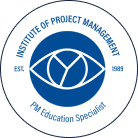
Professional Diploma in Strategic Project Management
Obtaining a professional diploma from IPM is partnering with a global authority with over 30 years of experience in project management training. IPM has trained over 40k professionals and certified over 6000 project managers.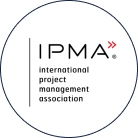
IPMA Level-C® International Professional Certification
IPMA®, founded 1965 in Switzerland, is the world's oldest professional project management association. It is recognised in over 70 countries. Eligible candidates will achieve IPMA Level-C® certification on successful completion of the course.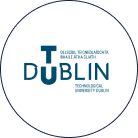
NFQ Level 9 Special Purpose Award (15 ECTS)
Gain assured recognition of academic excellence with a university-credit-rated curriculum and a National Framework of Qualifications Award validated by Technological University Dublin - Ireland's 2nd largest University.
Overview of Course Assessment
The assessment for this course will be four written assignments (continuous assessment) and one final written examination.
You will be asked to complete four assignments during the course. Each assignment includes instructions for how to complete and submit your work.
Final Written Examination
The final written examination will consist of 18 questions, and you are required to answer any 15 of them. The questions will cover all the topics discussed during the course, as well as the Individual Competence Baseline, version 4 (ICB4).
Course Assessment Marking Scheme
Results will be processed after students submit the four written assignments and sit the final exam.
The assessment structure for this course is divided as follows:
- Continuous Assessment (75%), which consists of Assignment 1 Executive Summary Report (10%), Assignment 2 PMO Establishment (30%), Assignment 3 Connecting Strategy Design to Delivery (15%) and Assignment 4 Project Workbook (20%).
- Final Written Examination (25%).
Course Pass Mark
The overall pass mark for NFQ Special Purpose Award is 40%.
The overall pass mark for IPM Professional Diploma is 60%.
The pass mark requirement for IPMA® Professional Certification is 60% in the written examination, which is also a condition to be admitted to the interview (final step of certification).
About the Institute
Since 1989, the Institute of Project Management has dedicated itself to creating the highest-quality education, training and certification in project management. We have trained over 40,000 individuals as project management has become widely used throughout the entire economy.
Through our unique training and education programmes, we help organizations to develop people – people who gain not only knowledge and skills but also the ability to put them to use immediately to meet the challenges they face.
Faculty of Excellence
In today’s increasingly competitive and financially difficult environment in-depth knowledge and professional expertise is everything. The faculty from the Institute of Project Management is setting the standard for project management education and certification in Ireland.
Led by Ed Naughton, IPMA Fellow and one of the world’s most respected figures in project management, the faculty combines academic excellence from both the university and institute of the technology sector with practitioner experience. The faculty spans finance, business administration, computer science, engineering, industrial relation and human resources, law, management information systems, and marketing.
The students benefit from a rigorous exposition of the depth and breadth of subject matter expertise brought to the topics by the faculty members.





